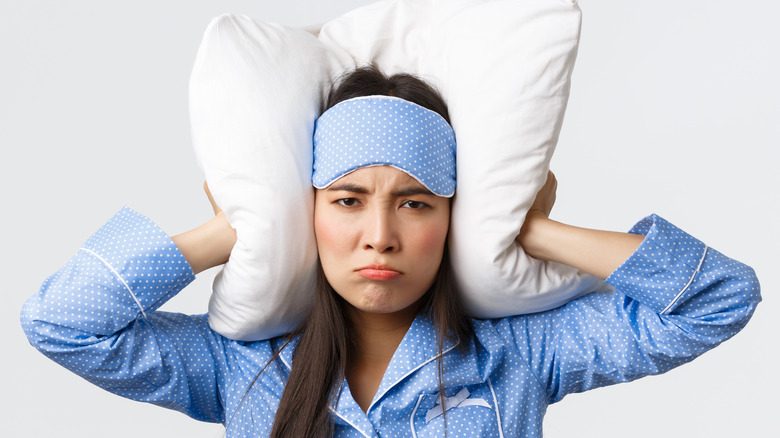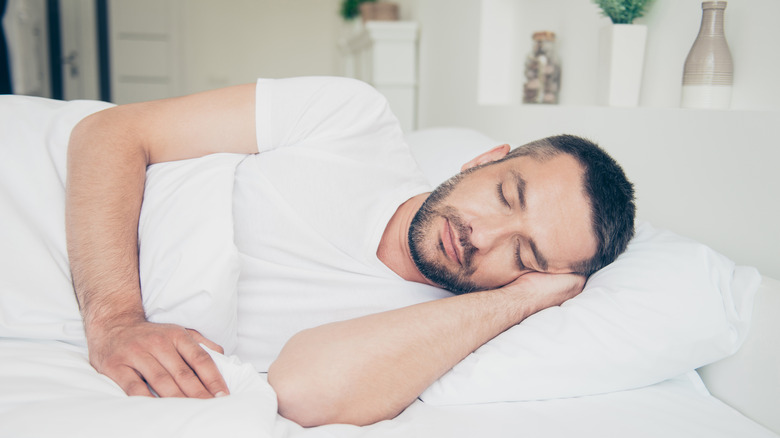The Worst Sleep Position For Snorers
While many of us may snore here and there from time to time, one-quarter of adults are routine snorers, according to Johns Hopkins Medicine. Snoring can occur as a result of certain medical conditions, but it can also be influenced by other factors such as allergens or feeling stuffed up due to a pesky cold. Snoring is what happens when airways become obstructed during sleep. Sometimes due to oversized throat tissue, as air makes its way through narrowed passageways, it creates a vibration that resonates as a snore, explains the Sleep Foundation.
While you may think that snoring means a person is in a state of deep slumber, snoring can actually lessen our quality of sleep, hindering our ability to function the following day, per Johns Hopkins Medicine. Too much sleep lost over time can pave the way for future health conditions, such as cardiovascular disease. To reduce your chances of snoring, you want to position yourself for success — literally. Certain sleep positions enable snoring more than others. So which are the best and worst sleeping positions for snorers?
Tips to keep yourself propped up while sleeping
Those who snore will want to refrain from sleeping on their back, otherwise referred to as the supine position (via Sleep Foundation). Due to the natural downward pull of gravity when positioned on your back, our airway narrows and the tongue and soft palate fall towards the back of the throat, thereby obstructing airflow which results in snoring (via Mindbodygreen).
Instead, those susceptible to snoring are likely to fare better on their side. While easier said than done, sleep expert Dr. Nishi Bhopal, tells Mindbodygreen about a few tips and tricks that can help keep sleepers propped up. "There's an old-fashioned hack that involves attaching a tennis ball(s) to the back of your pajamas to prevent you from rolling onto your back," says Dr. Bhopal. Thankfully, in lieu of a tennis ball, there are now wearable devices known as sleep position trainers that alert the wearer through vibration when they've shifted onto their back. But of course, using a tried-and-true pillow to block yourself from turning over can also do the trick.
As per Mindbodygreen, there are also things you can do to prepare yourself prior to sleep to help reduce the likelihood of snoring such as avoiding food or alcohol too close to bedtime. You could also try using a facial steamer or nasal strip.


